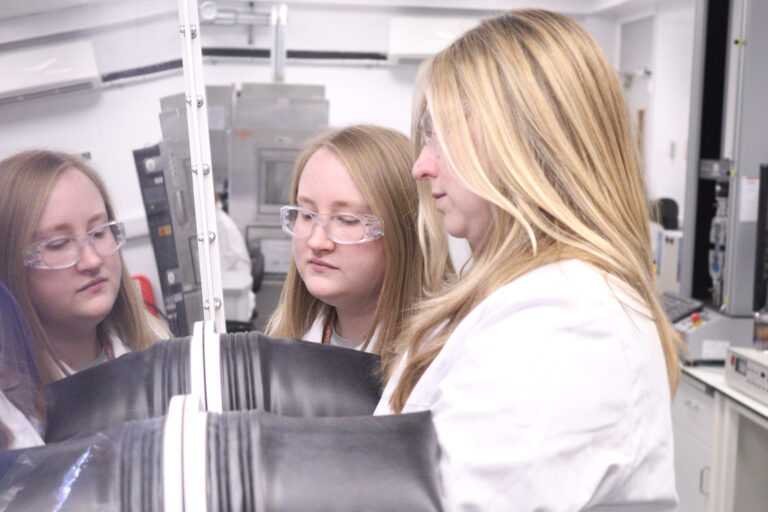Construction is currently in progress on the UK Battery Industrialisation Centre’s (UKBIC) innovative battery laboratory, with completion planned for 2024. The expanded facility is poised to enhance UKBIC’s capabilities in critical areas such as battery materials characterization, cell analysis and forensic activities, aligning with its manufacturing development goals. Building on the existing national facility’s testing capabilities, the new laboratory will enable real-time analysis and testing of materials and cells manufactured on-site. It will employ a diverse range of techniques to furnish essential lineside data throughout the scale-up process.
Spanning 320m2, the upcoming battery laboratory is four times larger than UKBIC’s current testing facility. This increased space will facilitate the characterization of products processed on the existing volume manufacturing line and support the anticipated flexible development line set to launch in 2025. The flexible line aims to bridge the gap between UKBIC’s existing industrialization line and earlier technology readiness level (TRL) kilogram-scale R&D pilot lines available elsewhere.
The manufacturing capability will strategically target five key areas to propel development. It will prioritize material characterization through analytical analyses, providing an in-depth understanding of properties such as morphology, crystal structure and elemental composition. The capability will also include chemical and physical processing to prepare samples for detailed characterization, ensuring the safe handling of hazardous materials. Additionally, a dedicated focus on forensics will allow the dissection of cells, facilitating a comprehensive investigation into their properties and failure modes. The manufacturing capability will emphasize electrochemistry, enabling advanced analysis of cells, including extended cycling and electrochemical impedance spectroscopy. The integration of a CT scanner will further facilitate non-destructive analysis of cells, offering insights into potential issues and failure modes without physical teardown.
Funding for the new laboratory is sourced from UK Research and Innovation through the Faraday Battery Challenge, a £610m (US$766m) investment program supporting scientific technology development and manufacturing scale-up capability for batteries in the UK.
Sean Gilgunn, UKBIC’s MD, said, “Being able to better understand the materials and the issues that can occur during the manufacturing scale-up process will help our customers develop their battery technologies much more efficiently. Having the capability available on-site will be an incredible resource for UKBIC.”
Tony Harper, director of the Faraday Battery Challenge, added, “Having this additional on-site resource will further optimize the industrialization process for users. Technology developers require significant amounts of continual feedback and data as they develop and scale new manufacturing processes toward commercial production. Having real-time access to this new lineside equipment at UKBIC further enhances the UK’s position in supporting effective battery technology scale-up.”
For more on facility developments, please click here.


